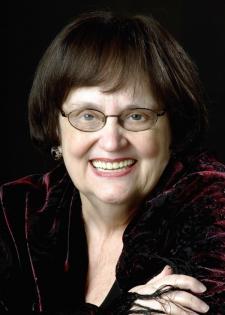In Honor of Whitman and Williams

William Carlos Williams believed that the "universal is in the particular." and I feel very connected to this statement and how it affects American literature. Looking back, I believe that Whitman also thought that the universal was in the particular and took huge risks in his poems with line length, sound content, and word usage,but in particular, he was willing to be honest and direct in his poems.This characteristic and the level of detail in Whitman's poems seem to fit in with Williams's ideas.
Williams was also very influential on many contemporary poets.Thirty-seven years ago, I started the Poetry Center and during that time, many major poets have come to Paerson to read for me. So many of them talked about Williams's influence and about corresponding with him and how it caused them to change the way that they were writing.
One of these people was Allen Ginsberg. He told me that he corresponded with Williams and that Williams encouraged him to forget the instructions he was receiving at Columbia and to stop writing about things he knew he knew absolutely nothing about. He told Allen that his letters were much more interesting than the poems he wrote while he was at Columbia. In fact, Williams included some of Allen's letters in his epic poem, "Paterson." Allen's earlier poems are nothing at all like his great poems, "Kaddish" or "America" or "Howl." These poems changed American literature. I believe that those poems opened the door for the poets who came later, like Sylvia Plath and Anne Sexton, and for the large number of poems by people of color. I don't think that there would have been the opportunity for those poets without the tradition of Whitman and Williams and the groundbreaking poems of Ginsberg.
I love the bravery and irreverence of Whitman and Ginsberg, and I think that this trend in American literature has caused us to create a very electric, alive, and exciting poetic. These poets gave birth to a narrative tradition in poetry that distinguishes the poems in America from those in much of the world. I think the narrative tradition goes back to the the wandering minstrels and back to the troubadours. We have a tradition of storytelling in poetry, a tradition of rooting poems in a story that at some point we were starting to lose, and that certainly was lost in many of the more philosophical and intellectual strains of poetry found in both America and Europe.
In my classes among my own students, I try to encourage them to take a risk, tell a story, to believe that what they have to say is important, that their work should be rooted in what they believe and know, and it should have a connection to human experience. This connection forms a bridge between people that can only be formed by poetry that makes you laugh or cry or makes the hair on your arms stand up. That's what I want to do in my own poetry and that's what I encourage my students to do.
I am trying to connect my personal experience with the personal experience of other people, but also with what's going on in the world. Often in a poem, I will discuss a contemporary event or a concern and mix it with personal details about my life and own story. I think of the poems that I've written about the environment and my grief over what we've done to destroy the world and my grief over losing my husband of 47 years or of losing so many of the other people I have loved in my life. I hope this opens people up to poetry and how it can change our ideas and our lives. As an immigrant child who did not speak English when I went to school, poetry was my salvation and I've dedicated my life to trying to bring clear, direct, specific, accessible poetry to other people and to encourage them to write about their own lives. This is why poetry is important to me and why I cannot imagine my own life without it.
Recommended
Nor’easter
Post-Op Appointment With My Father
Cedar Valley Youth Poet Laureate | Fall 2024 Workshop






